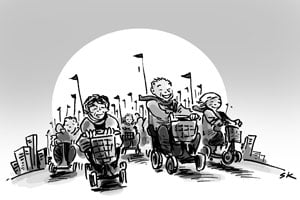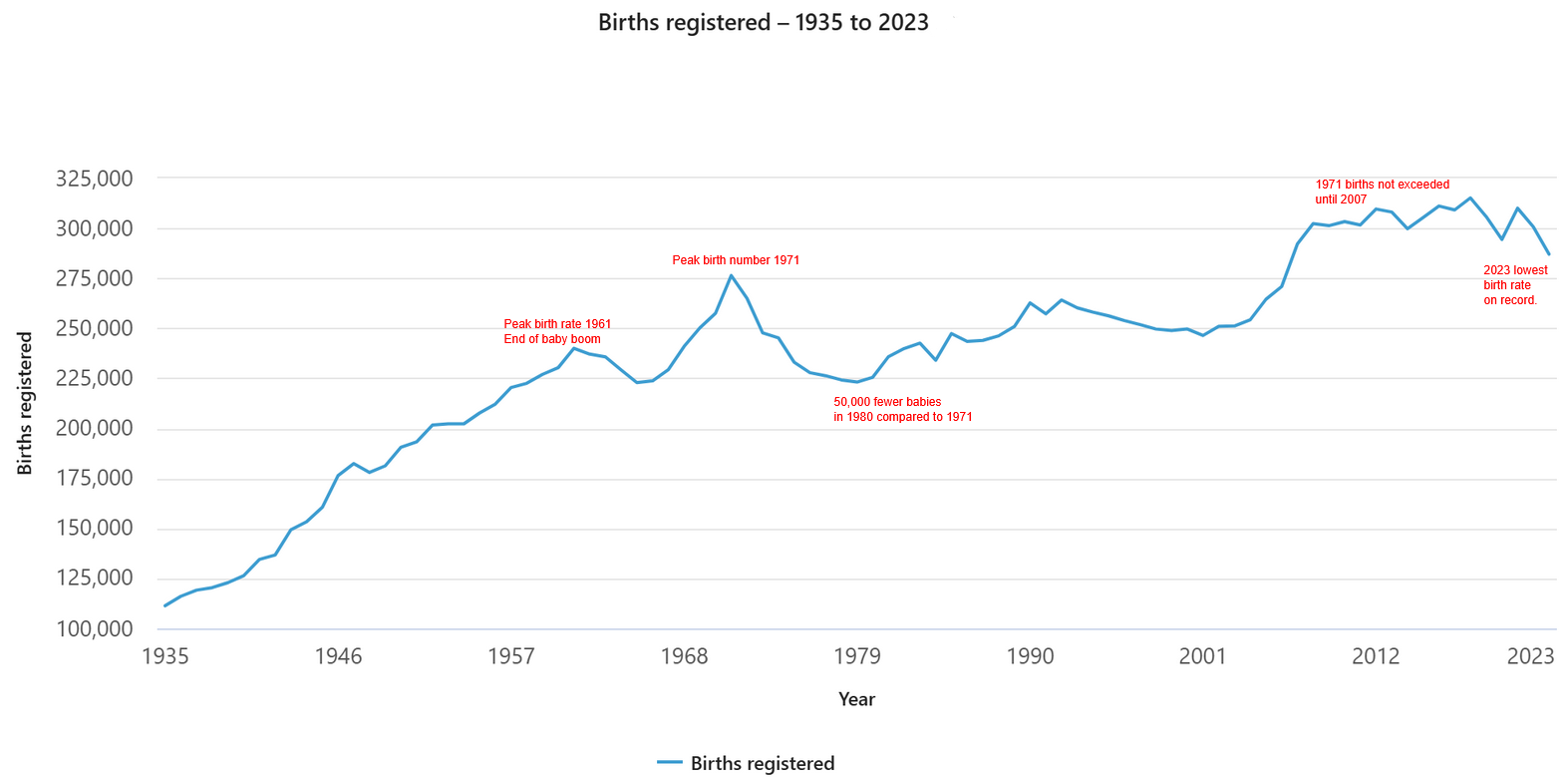At .id we like to keep an eye on demographic trends worldwide as well as in Australia. This article caught our eye recently. It says that the number of deaths in Tokyo has now exceeded the number of births, as the population continues to age. Japan is now one of the most elderly societies in the world and the population has begun to decline as a result.

The fact is most interesting because, Japan-wide, deaths have outnumbered births since 2007. World cities, such as Tokyo, attract many more young people, and are expected to be younger than their nations generally. This is certainly the case with Sydney and Melbourne, where young adults are attracted for employment and education. You can see this clearly on the single year of age chart in our Australia profile.
The ageing of Japan is for several reasons. Like many industrialised nations, it has a low birth rate, but Japan’s is particularly low, at 1.39 births per female (2010). For comparison, Australia in 2011 recorded a fertility rate of 1.88 – still below the generally accepted “replacement level” of 2.10, but significantly higher. Even at its lowest ebb in Australia, the birth rate was 1.73 (in 2001).
Japan also has the longest life expectancy in the world, at 82.7 years in 2010 (for women it’s a staggering 86.1 years). Australia is not too far behind though at 84.0 for women. Many have credited the Japanese diet for this extremely long life, and Japan has 7 of the 20 oldest living individuals in the world (including the 3 oldest).
So a combination of low birth rate and high life expectancy is causing Japan’s population to age. They also have a very restrictive immigration policy, and don’t take large numbers of migrants as we do. So now the population is starting to decline.
The 2010 Census showed barely an increase in population in 5 years, and the 2012 estimate is that Japan’s population is now falling at around 250,000 people per year.
The proportion of Japan’s population aged 65+ is now estimated at 23.1%. Tokyo, which is the subject of the article (remember, the largest city, a great attractor of the young), already has 20.4% of the population aged 65+. For comparison, Australia (which to be fair, is ageing too!), has 14.0%, while Greater Sydney (our nearest comparison to Tokyo, with about a third of the population!) has 12.8% aged 65+. The article says that there are 2.64 million people over the age of 65 in Greater Tokyo. This is almost as many as we have in the whole of Australia (3.01 million).
The article also shows that our cities do have something else in common with Tokyo too – While the nation declines in population, the largest city continues to grow, drawing in people from other parts of the nation. Our cities do the same, particularly Sydney, Melbourne and Perth – and of course we have the large overseas migration as well.
So Japan’s proportion of people aged 65+ is 23.1% currently, and is expected to rise to 30% by 2025. Let’s have a look at a few areas of Australia that are similar, to get some perspective.
Mornington Peninsula Shire, Vic – 21.5%
Great Lakes Council Area, NSW – 30.6%
Redcliffe district (Part of Moreton Bay Council), Qld – 19.3%
Victor Harbor, SA – 34.8%
Central Coast, Tas – 18.6%
These are all popular retirement areas – I know we are comparing here small parts of Australia to a whole nation which is much larger than Australia, but I find it’s interesting to get a bit of perspective, by using a familiar area for comparison.
Don’t forget that if your local LGA is a subscriber to profile.id you can find out all this information not only for the LGA but for each suburb or district at .id’s demographic resource centre.
If you’re Japanese, have been to Japan recently, or have studied the ageing population of Japan in a bit more detail, we’d love to have your comments, please feel free to comment on this blog!












